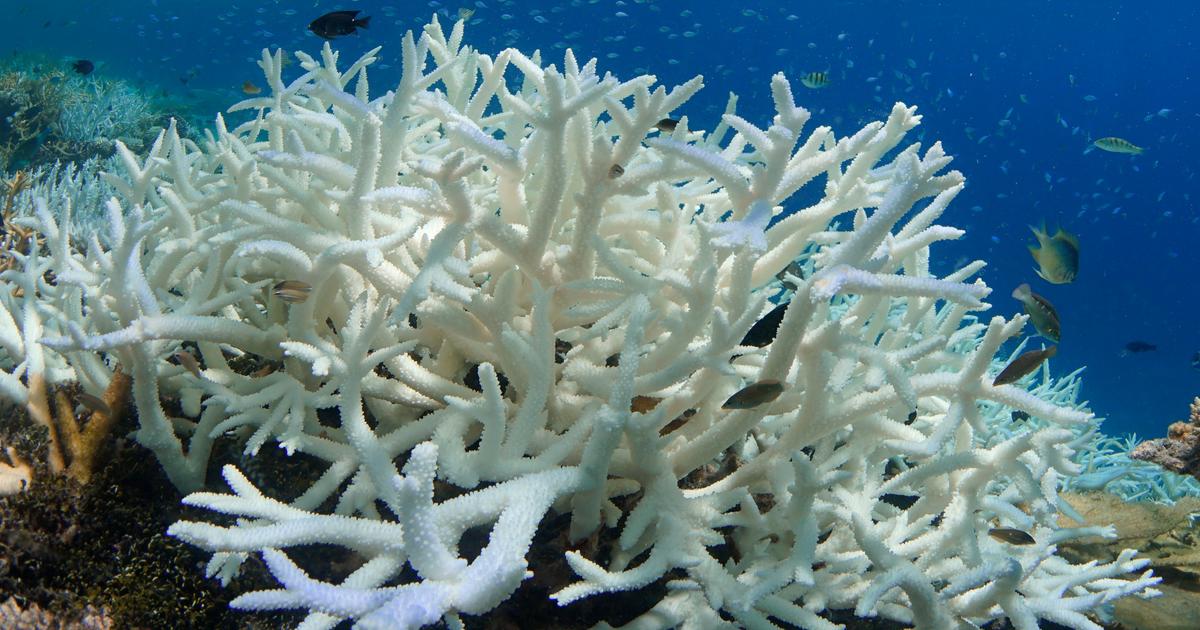Like music that softens morals, can certain sounds help save corals?
Records of healthy reefs could contribute to efforts to restore coral ecosystems damaged by climate change and human activity, according to a study released Wednesday.
While the Australian Great Barrier Reef is experiencing a seventh episode of
“mass bleaching”
and several coral reefs in the northern hemisphere have already experienced dramatic losses last year in Florida and the Caribbean due to record ocean temperatures recorded in recent months, scientists are seeking by all means to stop the massacre.
Researchers at the Woods Hole Oceanographic Institution say in the journal Royal Society Open Science that one method of helping reefs rebuild could be sound.
After broadcasting audio recordings of healthy reefs, a sort of underwater symphony composed of
“fish songs”
and other
“shrimp claw snaps”
, they found that this encouraged coral larvae to settle on the seabed. sailors from a degraded reef, offering them a chance to regenerate.
“The local sound environment is very important for these corals”
during their first phase of life, when they are looking for a permanent home to develop, Nadege Aoki, lead author of the study, who sees in broadcasting these sounds a
“vital tool”
in restoration efforts.
A healthy reef is a noisier reef
After listening to coral reefs in the U.S. Virgin Islands for more than a decade, researchers learned that specific sounds distinguish living, healthy habitats from those that have been damaged by bleaching, disease, or human damage (pollution, destruction). by fishing or overtourism).
“A healthy coral reef typically has many low-frequency sounds, such as croaks, purrs and grunts produced by fish, against a near-constant background of crackles and ‘pops’ produced by shrimp,”
explains Ms. Aoki.
Conversely, a degraded reef, with fewer species,
“will be much quieter”
.
To conduct their study, the team of scientists collected specimens of a hardy species of coral, known as
“mustard hill”
coral , due to its lumpy shape and yellow hue, which they distributed on three reefs in the US Virgin Islands - one healthy and the other two more degraded.
The researchers then installed underwater speakers to broadcast their catalog of healthy reef sounds in one of the degraded reefs and found that coral larvae there settled at rates averaging 1.7 times higher than in the other two reefs, where no sound was broadcast.
90% of coral reefs could disappear with global warming
There is still much to learn about how corals respond to sound, Aoki acknowledges, including whether different species behave in the same way and how they are able to "
hear
. "
This finding nevertheless suggests that sound could be incorporated into restoration efforts, although this must be monitored and protected, as establishment on a reef is only one stage in a coral's life.
Coral reefs are home to around a quarter of marine life and millions of people depend on them for food and income.
Up to 90% of them could disappear if global warming reaches 1.5 degrees Celsius above pre-industrial levels.

